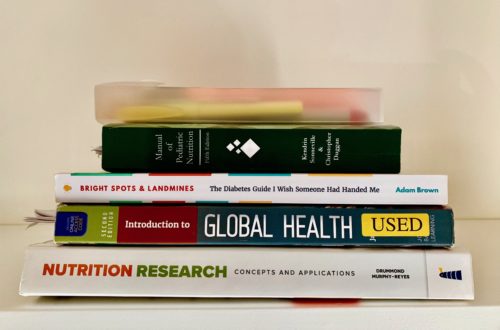Symposiums: Beyond the Grecian Aristocratic Banquet of Philosophical Discussion
I never considered myself much of a scientific researcher. Couple that with the thought of presenting an original report at a Research Symposium, even at the undergraduate level, and my apprehension level skyrockets. But as I enter my last year as a dietetic student, I want to take a risk, step out of my comfort zone and rise to the challenge.
I encourage you to follow along as I blog about my experience leading up to my presentation at the MSU Undergraduate Research Symposium on April 25, 2014.
Choosing a topic
So, what is a ‘symposium’ anyway? Prior to MSU, I had only heard the word in the context of high school AP World History – when the Greeks would indulge in copious amounts of wine, talk philosophy and recite poetry until the sun rose the next morning. But I don’t think that’s what I signed up for. I would consider a symposium to be a more formalized gathering of individuals passionate about unraveling and discussing a given idea.
For my presentation, I chose a topic that would be appropriate for clinical research and allow for greater exploration of a unique database – one I work with daily.
I am part of a team at Coram Healthcare Clinical Trials, where I help build a patient registry to monitor and evaluate home infusion of immunoglobulin therapy. The registry assembles clinical and humanistic knowledge that acts as a longitudinal database, tracking outcomes of routine clinical practice. The Immunoglobulin, Diagnosis, Evaluation and key Learnings (IDEaL) registry program is designed to enhance the understanding of patients with diseases requiring Ig therapy. Many of these patients have been diagnosed with CVID, common variable immunodeficiency.
Within the registry, I want to compile a list of prescribed supplemental micronutrients noted in the medication profiles of patients managing symptoms associated with CVID, Common Variable Immunodeficiency. I want to determine if there is a trend in the types of supplemental micronutrients prescribed and if they might have a correlation or causation to annul infection rates.
Structuring the research
In order to start my research, I need to determine (a) what I know, (b) what I want to know, and (c) how to get from (a) to (b).
What I know
- The patients of primary focus in the registry have CVID.
- CVID is a group of genetic disorders with various underlying causes, which cause patients to produce insufficient antibodies in response to exposure to pathogens. As a result, a patient’s immune system fails to protect them from common bacterial and viral infections.
- There are micronutrients that exist in nature that increase the functionality of the immune system.
- Many of the medical profiles of the patients in the registry show a record of supplemental micronutrient intake in addition to immunoglobulin therapy.
What I Want to Know
- What would be on a comprehensive list of supplemental micronutrients being consumed by CVID patients on IG therapy?
- Is there a trend in supplemental micronutrient intake?
- Is there a correlation and/or causation between supplemental micronutrient intake and annual infection rate?
- Are there RDA adjustments for CVID patients on IG therapy?
Closing the Gap
- What do my reports from the IDEaL Patient Registry say?
- What does the published research say?
- Is there even published research in this area of study?
- What about the experts? Immunologist – Journal of Clinical Immunology? Dietitians – American Journal of Clinical Nutrition?
I realize this is getting quite specific, but it provides some insight as to where I’m starting from, and the research that lies ahead.
Formulate a hypothesis
The RD2B (Registered Dietitian To Be) in me says that every condition and symptom can be improved through medical nutritional therapy, but I can’t let my personal opinion bias my research. I believe that, within a compiled list of supplemental micronutrients, I will see trends in vitamins and minerals prescribed. I also believe I will see a correlation between supplemental micronutrient intake and annual infection rates. A causation relationship might be more difficult to prove.
Find a faculty mentor
With the combination of nutrition, biochemistry and clinical research, the first faculty that came to mind was Dr. Michael Bizeau, MSU Human Nutrition and Dietetic Coordinator / Assistant Professor. His creative and thoughtful approach to both classroom learning and Nutrition Nerds positioned him as my preferred choice for a research mentor. When I approached him after class, he agreed to take on the responsibility.
Now what?
In the coming weeks I will run reports, read the literature, compile the data, and hope I find all the evidence I need to present my report. Steve Jobs had a great quote from his Stanford University commencement speech. He said, “You can’t connect the dots looking forward; you can only connect them looking backwards. So you have to trust that the dots will somehow connect in your future. You have to trust in something — your gut, destiny, life, karma, whatever. This approach has never let me down, and it has made all the difference in my life.”



